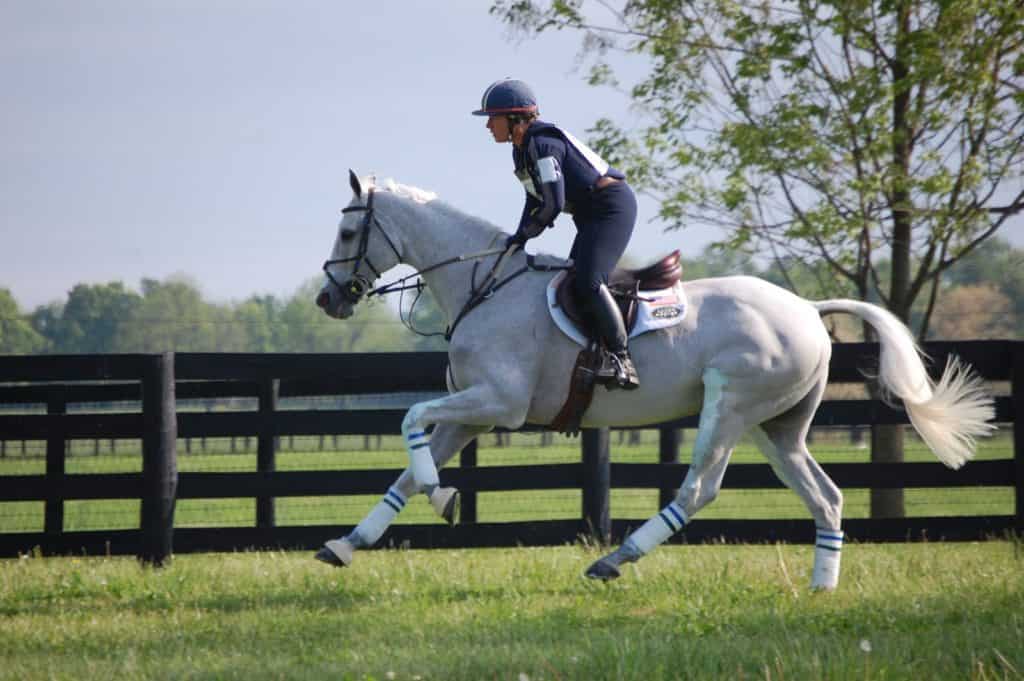Making a Nutrition Plan for a Performance Horse

Horse owners and trainers want the best nutrition plans for their performance horses to keep them healthy and competitive. “Performance” is broadly defined as any form of work or physical activity, so a “performance horse” can include any horse being actively ridden or pulling/hauling loads at any level of training. Many factors come into play when determining feeding requirements, including age of the horse, training type and level, work intensity, time of year, and climate.
Energy and Performance
When developing a nutritional plan, your nutritionist will likely ask what sport your horse performs and the intensity of his training sessions. Horses doing aerobic-type exercise (think endurance and trail riding) will have different physical demands than horses doing anaerobic exercise (think racing and jumping). While all types of exercise require calories (energy), horses doing slower aerobic exercise benefit from having fat as their primary energy source. As the body adapts to using fats for energy, it will begin to conserve muscle glycogen. Maintaining an appropriate level of glycogen in the muscles will help delay the onset of fatigue. Introduce fats into your horse’s diet over time to prevent digestive disturbances. Because horses do not have gall bladders, they can only metabolize so much fat.
Carbohydrates, such as those found in grains and forages, are also great energy sources. However, excessive carbohydrates, especially the more readily digestible types, can cause issues (e.g., colic, ulcers, laminitis), so it is important to monitor how much a horse receives. Another consideration when feeding a diet high in carbohydrates is they produce heat internally during digestion, so you might want to reduce the amount a horse eats in hotter climates.
Monitor Your Horse
Monitor your horse’s performance, weight, and muscle tone as part of your routine evaluation. The Henneke body condition scoring system, which has been around since the 1980s, is a good way to assess your horse. This scale ranges from 1-9, with a desired score of 4-6 for most horses. It is also helpful to include an evaluation of a horse’s cresty neck score, as excess fat along the crest can indicate possible metabolic issues, such as equine metabolic disease or a predisposition for laminitis.
A horse’s dietary needs will change throughout the year as the weather and workload change. Monitoring body condition regularly will help you ensure your horse isn’t too fat or too thin and can do his job to the best of his ability.
Water and Salt
Horses should always have access to fresh, clean water and salt to replace that lost through sweating. A dehydrated horse or one with a mineral imbalance will not be able to perform or recover well after exercise. Most horses self-regulate and consume water and salt to replace what is lost, so providing free-choice salt usually meets those needs. However, if you have a horse that goes through salt blocks rapidly, you might want to switch to a loose salt top-dressed on his feed.
Take-Home Message
There are many factors to consider when feeding a performance horse. Meeting caloric requirements and maintaining proper body condition are key to a horse performing its best. Working with a qualified equine nutritionist or veterinarian can help you make the best choices for your horse.
Written by:
Janice L. Holland, PhD
Related Articles
Stay on top of the most recent Horse Health news with











